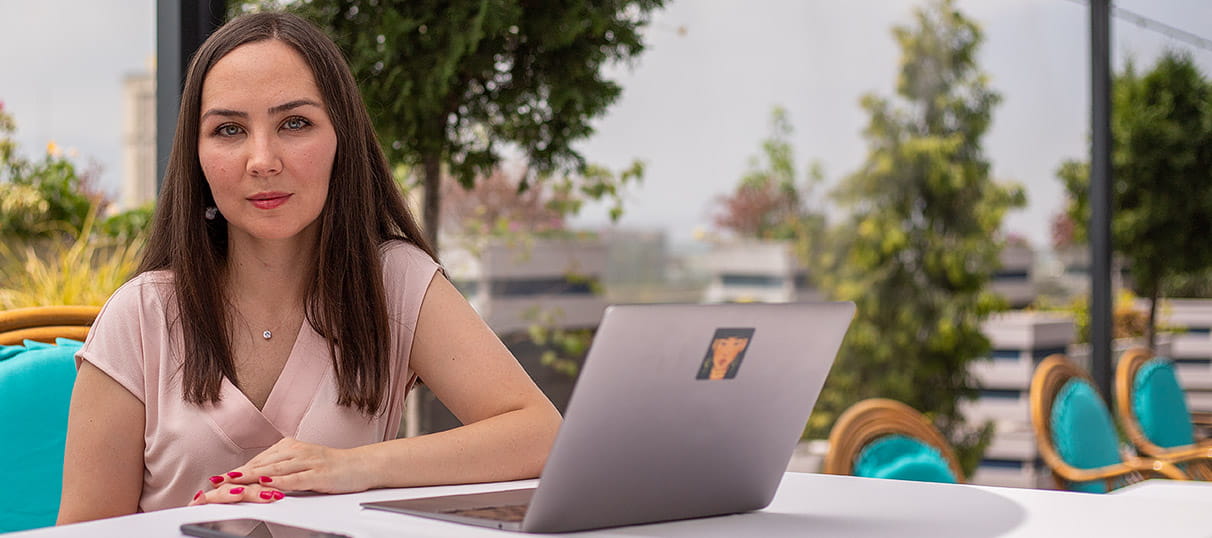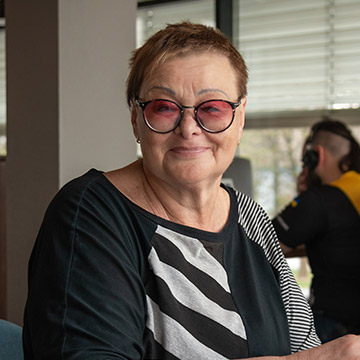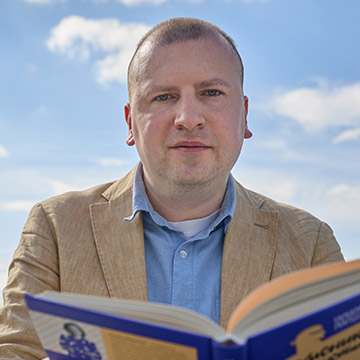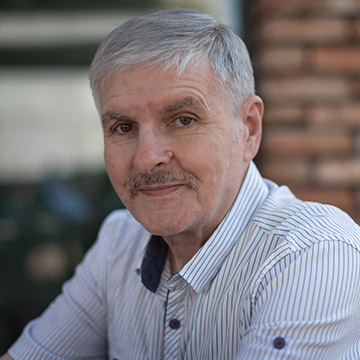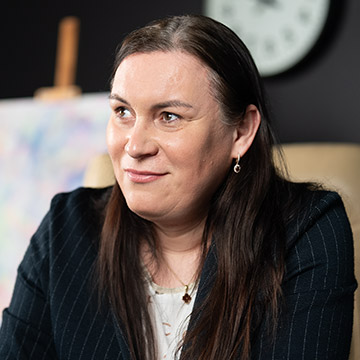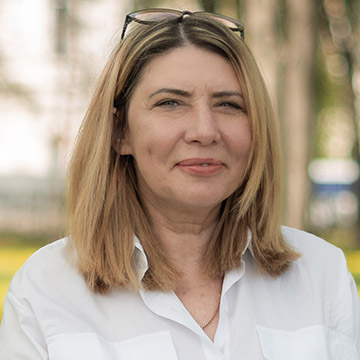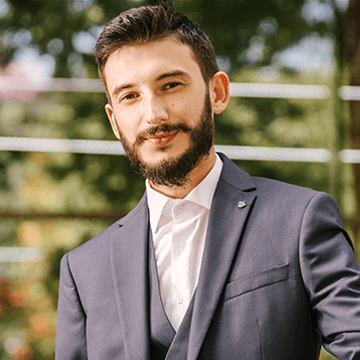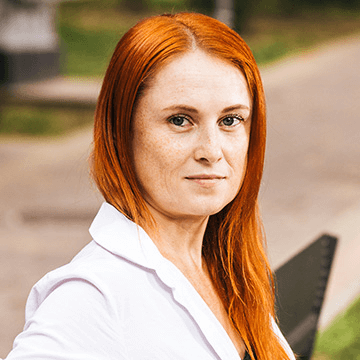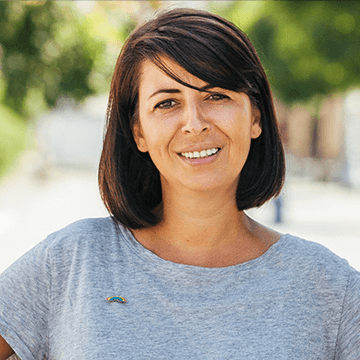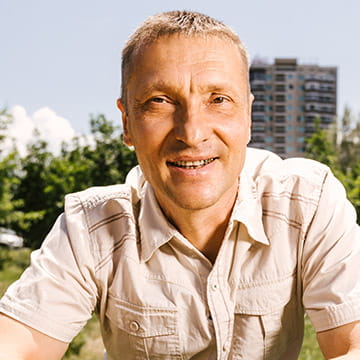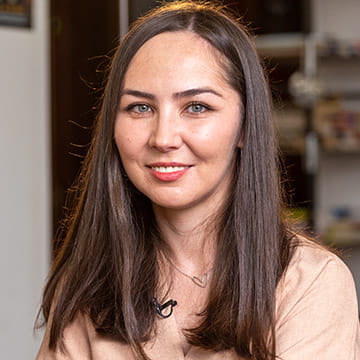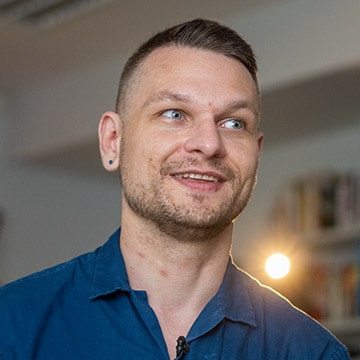Dina's STORY
Bishkek, Kyrgyzstan
Dina, coordinator of the Migrants Health project at AFEW Kyrgyzstan, insists that “this community cannot be ignored. The regional Migrants Health project strives to address the root cause of a broad range of issues that migrants face.” The initiative supports migrants throughout their immigration journey, not only with their health needs, but also to migrate legally and safely.
Dina’s “strong sense of what’s right and wrong” and resulting passion for social justice started at a young age but she describes her pathway into the HIV space as the “luckiest accident of her life”. Having graduated from university, she stumbled upon an advertisement for a job as an administrative assistant to the Director at AFEW Kyrgyzstan, where she learned much about HIV and the key population groups impacted. With this knowledge and experience, Dina felt she could do more to help the organisation raise funds to support more people and became a project manager. For Dina, the priority is “that [her] work is making a difference in people's lives,” so it is no surprise that her “favourite part of the job is meeting with the beneficiaries, hearing their stories and learning how we can work together to make them healthier and happier.”
Reflecting on the challenges she has witnessed migrants face, Dina says “it is no surprise that the unique circumstances of migrant workers have a tremendous impact on their health and wellbeing. Often, they experience excessive stress, poor and over-crowded living conditions, as well as unregulated working conditions. Many migrants have huge financial pressures from their families in their home countries and live in environments that are largely hostile to foreign inhabitants, making access to testing and care even more difficult.” To complicate matters further, coordinating health care across international borders is extraordinarily difficult, so adhering to treatment as a migrant can be a monumental challenge.
Recently, Dina and her team worked with the Kyrgyz Republican AIDS Center to develop and sign a new order that allows migrants to register with the AIDS Center in Bishkek remotely, without the need to return to their home country – an act which will have an immeasurable impact on people living with HIV from Kyrgyzstan who are living abroad.
Many migrants have huge financial pressures from their families in their home countries and live in environments that are largely hostile to foreign inhabitants, making access to testing and care even more difficult
Among her many stories from working in migrants’ health, one that stands out to Dina is that of a young Tajik man who tested positive for HIV while in migration and described the moment he was diagnosed as some form of a “divine retribution, like a deadly punishment for misbehaviour.” When Dina bumped into him a few months later, she was delighted to learn that he had connected with one of Dina’s partner organisations in Tajikistan, where he found a supportive community. His attitude had completely changed: he had started on treatment and embraced his diagnosis, realising he could live a long, fulfilling life with HIV.
Supporting the community of Kyrgyz migrants from key populations is just one initiative that RADIAN and the organisations it assists are working on to change the tide of the HIV epidemic in EECA.
According to Dina, “the COVID 19 pandemic has truly shown us that local health is global health. We are all very much interrelated and interconnected, and the global effort to address HIV and AIDS are equally important at a local level.”
The impact of RADIAN on Dina’s work
Education on HIV and sexual health helps reduce stigma, prevent new cases of HIV, and facilitate access to care. RADIAN funding helps Dina and her organisation provide this crucial information to migrants living with or at increased risk of HIV, improving their access to tailored prevention, care, and support.
With the unique and ever-changing landscape of the HIV epidemic in EECA, Dina hopes that more organisations can help address the specific needs of migrants in the region. With effective treatment and prevention tools increasingly available, Dina believes that education and open conversations are vital components in bringing an end to HIV globally.
-
1.
World Bank staff estimates based on IMF balance of payments data, and World Bank and OECD GDP estimates. Personal remittances, received – Kyrgyz Republic 2020. Available at: Personal remittances, received (% of GDP) – Kyrgyz Republic | Data (worldbank.org) [Accessed: October 2023]
-
2.
Republican AIDS Center, Analysis of EHCMS (Electronic HIV Case Management System) Data, 2017–2021.



